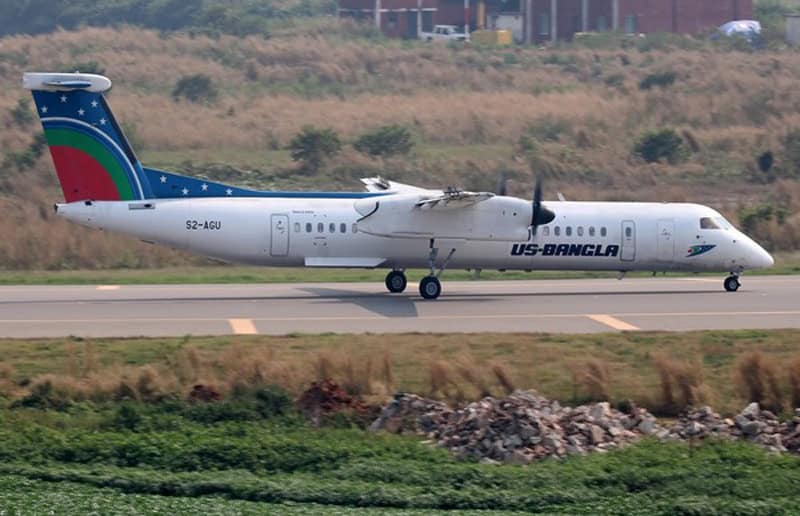Kathmandu: The US-Bangla airline Bombardier UBG-211 crash that occurred in March last year, took place as the pilot, who was in charge of the flight had smoked inside the cockpit despite restrictions, authorities confirmed on Sunday.
“The company has a policy of ‘No Smoking’ in all the flights, domestic as well as international. The PIC (pilot in command) was a smoker as per information received by the commission. The commission concluded from CVR (cockpit voice recorder) record that PIC smoked in the cockpit during this flight.
However, the operation department and other authorities may not have been sure about this safety violation by the PIC during flight,” the Accident Investigation Commission formed to probe the reasons behind the crash of the airline stated in a statement.
The reports clarified that only tobacco was used during the flight duration and ruled out the use of any other sort of banned assorted items consumed during the flight time.
“The Accident Investigation Commission determines that the probable cause of the accident is due to disorientation and a complete loss of situational awareness in the part of the crew member,” the investigation committee said.
As many as 51 people lost their lives when the aircraft crashed immediately after landing on Nepal’s Tribhuwan International Airport (TIA). The reports were published later after the investigation commission submitted it to the Nepali Ministry of Culture, Tourism and Civil Aviation.
“The Accident Investigation Commission determines that the probable cause of the accident is due to disorientation and a complete loss of situational awareness in the part of the crew member.
Contributing to this the aircraft was offset to the proper approach path that led to manoeuvres in a very dangerous and unsafe attitude to align with the runway. The landing was completed in sheer desperation after sighting the runway, at very close proximity and very low altitude. There was no attempt made to carry out a go-around when a go-around seemed possible until the last instant before touchdown on the runway,” the statement read.
The post-mortem of the deceased, performed in the Department of Forensic Medicine in Kathmandu, found “blunt force injury head” to be the reason for the death of the passengers.
The report has pointed to the human discretion and the natural factor that contributed for the downing of the aircraft.
“The aircraft failed to approach the runway in proper touchdown attitude; given that the aircraft attempted touchdown in extreme attitudes, the flight crew followed a non-prescribed procedure and that the situation was further complicated by prevailing westerly crosswind conditions at Kathmandu (VNKT), the aircraft departed the runway surface towards the southeasterly direction,” the committee said.
Further adding, the report also blamed the control tower of the TIA and the crew for the mishap.
“The Cockpit Voice Recorder data revealed some confusion in communication within the terminal area between the crew and the air traffic controller (VNKT Tower) regarding intentions of the flight crew and clearances for runways 02 and 20. Some of the weakness on Air Traffic parts like poor monitoring the aircraft visually after giving landing clearance for RWY 02, confusion on issuing the instruction for a go-around through the ATC alerted the crew that the aircraft was proceeding towards runway 20 even the landing clearance was given for runway 02,” the reports found.
On March 12 last year, the US Bangla Airlines while operating a scheduled passenger flight crashed about 442 meters southeast of the touchdown point of runway 20.
All four crew members of the airline, including two cockpit crew and two cabin crew, along with 45 passengers out of the total 67 aboard were killed during the accident. Two more passengers succumbed to injury later in the hospital during the course of treatment. The aircraft was destroyed by impact forces and a post-crash fire.
[source_without_link]ANI[/source_without_link]

